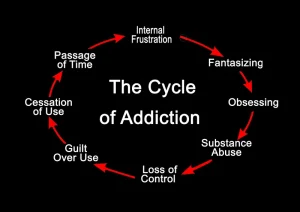
Researchers find that taking incremental steps to change behavior often motivates people to eventually choose abstinence. Nevertheless, many treatment programs, including Alcoholics Anonymous, require a commitment to complete abstinence as a condition of admission. Intrinsic motivation, which stems from personal desires and a desire for positive change, is crucial in addiction recovery. This type of motivation is more sustainable and enduring compared to extrinsic factors such as legal issues or social influence. Building intrinsic motivation involves exploring personal values, setting goals, and focusing on the long-term benefits of a sober life.
Set Realistic Goals and Celebrate Milestones
It is not currently a technique that is widely used, as motivational interviewing is much more broadly applicable. If you learn MI, it is simple to follow and apply the protocol outlined in the Project MATCH manual. Motivational Enhancement Therapy uses motivational interviewing (MI) as its core process. The ideal path for change is to move from determination to action and eventually (after a few months) into the maintenance stage. For many in recovery, the path is not linear and may require several attempts.
Strategies for Staying Motivated
- Studies suggest that people who forgive themselves for past mistakes experience less anxiety and depression.
- Support groups, meetings, workshops and forums provide chances to learn from others’ experiences and gain guidance from experts.
- Integrating motivational counseling approaches into a treatment program requires a broad integration of the philosophy and underlying spirit of MI throughout the organization.
- Consequently, researchers have had to consider more seriously the role of motivation in the treatment of and recovery from substance abuse and to incorporate motivational enhancement strategies into treatment programs.
Trained professionals can help people comprehensively address their addiction and develop strategies for recovery. Staying motivated in addiction recovery is a continuous and vital journey. https://ecosoberhouse.com/article/the-importance-of-gratitude-in-recovery/ Discover how motivation contributes to long-term sobriety, explore personalized resources and treatment options, and find the resolve to keep going, even when the path gets tough.

Motivational Interviewing
- Recognizing that patients vary in their motivation or readiness to change, researchers have designed interventions and treatments to enhance motivation (DiClemente et al. 1992; Higgins and Budney 1993; Miller and Rollnick 1991; Miller et al. 1992; Stitzer et al. 1993).
- Through therapies like CBT, one can shift negative thoughts to positive affirmations and healthy coping mechanisms.
- Going beyond external rewards or consequences, it focuses on personal growth and self-empowerment.
- Get support from loved ones and the recovery community for encouragement, guidance, and accountability.
- The study investigated how effective the Mindfulness-Based Relapse Prevention program would be compared to a standard relapse-prevention program and a conventional 12-step program.
- In the following, we explore the implications of this approach in answering critical questions regarding drug use and addiction.
It is possible that such motivational training might have reduced the subjective value of alcohol and therefore restrained its motivational power, facilitating abstinence. This definition implies that motivational concepts abide by the general principles that govern all cognition (e.g., categories, concepts, judgments, or opinions). Such principles include the notions of construct accessibility (Higgins, 1996) and interconnectedness between motivational constructs and their dependence on limited cognitive resources (for reviews, see Fishbach & Ferguson, 2007; Kruglanski & Köpetz, 2009a, 2009b).
- From a prevention point of view, then, the likelihood of casual substance use transitioning into addiction could be reduced by diminishing the strength of the association between substance use and the goal that it serves.
- Before committing to a life free of drugs and alcohol, people should understand why it is important to achieve sobriety.
- Sobriety sampling, tapering down, and trial moderation are goal-sampling strategies that may be helpful to the client who is not committed to abstinence as a change goal.
The addict brain may think it can outsmart treatment but the experience almost always has a positive impact, even if it doesn’t immediately result in recovery. The times when self-motivation works are when the addict has discovered that there is something more precious than the addiction. It might recovery motivation be a child, a job, life itself, or a personal value such as dignity. None of these works for everyone, but hitting “rock bottom” usually means coming to the point where, beyond any doubt, there is a black and white choice between the addiction and something of ultimate personal importance.
How common is relapse?
When people struggle with substance abuse problems, family members may argue more often, harbor shame or develop an anxiety disorder. Even mild substance misuse can impede functioning in people with CODs, including co-occurring severe mental illness. Counselors can support clients’ movement toward positive changes in their substance use by identifying and enhancing motivation that already exists. Millions of people in the United States with SUDs are not receiving treatment. Many are not seeking treatment because their motivation to change their substance use behaviors is low.
- Rather, it attempted to identify convergence points between traditional and basic self-regulation perspectives on addiction and to advocate for an approach that emphasizes commonalities between addiction and motivated behavior while recognizing the uniqueness of drug use.
- Such an analysis may offer new insights into the self-regulatory mechanisms underlying drug addiction specifically and may address some of the challenging questions regarding the etiology, development, and maintenance of addictive behaviors more generally.
- The inspiration to live a sober lifestyle can come from loved ones, from people in similar situations or simply from thinking about the consequences of substance use.
- Recovery is a huge life change and life can often feel duller as you begin to recover.
What Is Motivational Enhancement Therapy?

